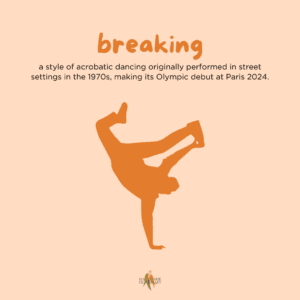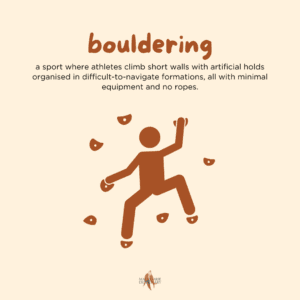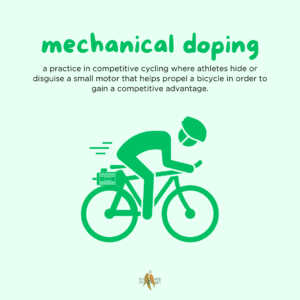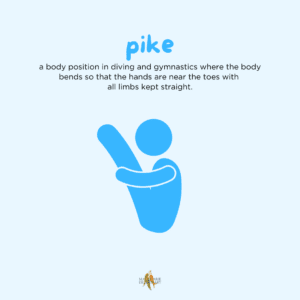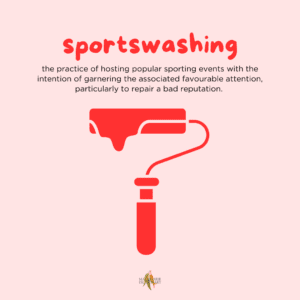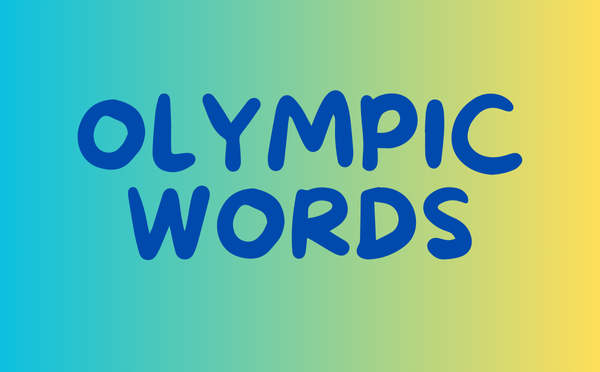With the Paris 2024 Olympic Games approaching quickly, news and social media has been flooded with stories about Olympic trials, new sports, and athletes making their way to Paris. While the Olympics is considered the pinnacle of sporting excellence, it also on occasion provides new terminology and linguistic innovation. Here we revisit some of our favourite sport words in the Macquarie Dictionary – both good and bad.
- breaking
Top of our list is breaking, the only sport making its Olympic debut at the 2024 Paris Games. In case you missed it, breaking is the preferred name for breakdancing by those who participate in the sport, and is a style of acrobatic dancing originally performed in street settings in the 1970s. Its Olympic rendition sees athletes compete in one-on-one battles consisting of top-rock, down-rock, freezes and power moves with nine judges deciding on a winner at the end of each battle.
- bouldering
Another recent addition to the Olympic Games, making its debut in the 2020 Tokyo Olympics, is sport climbing, which contains three different formats. One of these is bouldering, where athletes climb short walls with artificial holds organised in difficult-to-navigate formations, all with minimal equipment and no ropes. In its Olympic format, bouldering has athletes climbing walls that are 4.5 metres high in a limited amount of time in as few attempts as possible.
- pike
Known in other areas as a type of fish, a weapon, or the act of leaving quickly or backing out of a commitment, a pike in sports refers to the body position of athletes where the body bends so that the hands are near the toes, with all limbs remaining straight. In diving, the pike position is used in a jackknife dive, however the pike’s moment of fame in 2024 has come from gymnastics. In the US gymnastics trials, Simone Biles performed the Biles II, or a Yurchenko double pike vault, giving her the highest possible vault difficulty score. As the only female gymnast who has landed this skill in competition, the pike defined an exciting moment at the US Olympic gymnastic trials.
- mechanical doping
Doping has become an increasingly prevalent issue in sporting competitions, with mechanical doping being a new form of doping that sporting bodies need to be aware of. Mechanical doping, also known as motor doping, refers to a practice in competitive cycling where athletes hide or disguise a small motor that helps propel a bicycle in order to gain a competitive advantage. While hopefully not an issue in the upcoming Olympic Games, it’s definitely one of the more interesting types of doping introduced over the years.
- sportswashing
Our final sports word here is sportswashing. Modelled on whitewashing, and similar to pink washing and green washing, sportswashing refers to the practice of hosting popular sporting events with the intention of garnering the associated favourable attention. This is mainly done by nations or organisations attempting to recover their reputation after being associated with human rights violations, corruption, etc. This is another word not associated with the Paris Olympics, but it’s an interesting phenomenon that has emerged from other sporting competitions in the past.
Now while watching the 2024 Paris Olympic Games, you may want to tune in to the breaking or bouldering, or look out for Simone Biles’ Yurchenko double pike vault. Or maybe you’re more interested in accusations of mechanical doping and sportswashing. No matter what, the Macquarie Dictionary has loads more sports entries to help guide you through the 2024 Olympic season.
